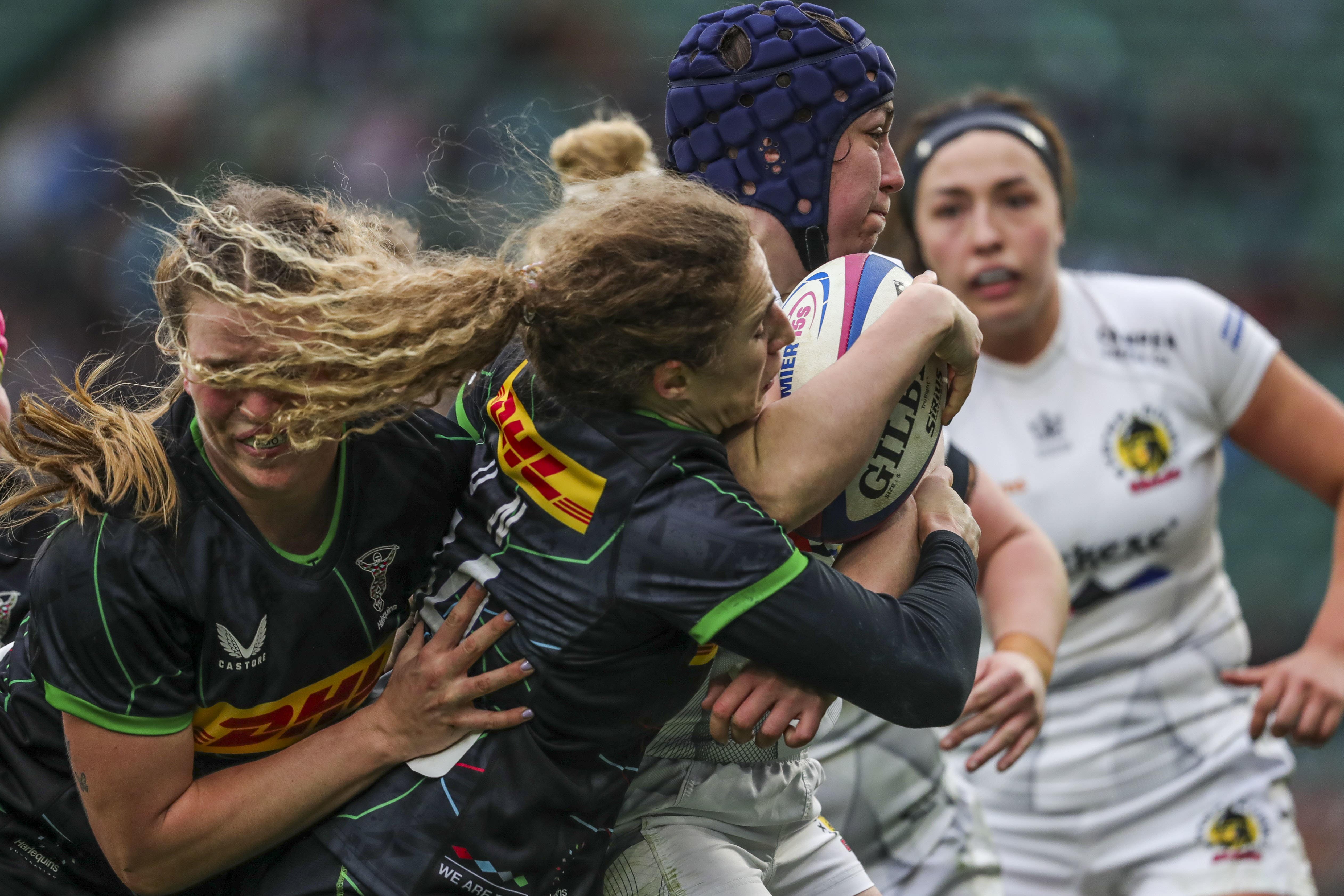Scientists aiming to move closer to cracking concussion code for female athletes
Testing has been conducted at the TikTok Six Nations and in the Allianz Premier 15s.

Scientists are hoping to move a step closer to cracking the concussion code for female athletes before the end of the year.
Marker Diagnostics has developed a tool which can identify the “unique signature” for concussion in a male player’s saliva.
In 2021, a University of Birmingham study found the tool was able to accurately predict the outcome of 94 per cent of head injury assessments (HIAs) conducted on elite male rugby players.
Marker researchers are now working to establish whether the same test can also accurately and objectively diagnose concussion in female players, or if a female-specific test is required.
Testing has been going on in the English women’s top flight since 2018, at the Women’s World Cup and the Farah Palmer Cup in New Zealand last year and at the TikTok Six Nations last year and this year.
The study, jointly funded by World Rugby and Marker, is set to continue in the English elite game and in this summer’s Farah Palmer Cup, and potentially in other women’s competitions where HIAs are conducted.
All players who consent to participate are given a ‘baseline’ saliva swab and fill out a health questionnaire prior to competing. They are then retested if they undergo an HIA at any point during competition.
These tests are taken at each stage of the HIA – immediately after an impact during a match, immediately after the match and between 36 and 48 hours after the match.
Medics in women's sports still have that challenge of trying to objectively diagnose concussion in female athletes. So putting something in place that can bridge that gap in resource is going to be really powerful as women's sport continues to expand and develop
Patrick O’Halloran, a senior medical adviser at Marker, told the PA news agency: “We’ve seen differences between men and women at baseline, the thing we should be able to uncover by the end of this year will be whether concussion expression is different in women or is it just diagnosed differently, and what happens after that concussion.
“It could be ‘OK, men and women look a bit different on the basis of these markers, but actually those differences are proportional and after a concussion, the test is still positive when we expect it to be.
“Or actually it could be that you need a different panel of biomarkers in women altogether.”
Asked why this study is so important, O’Halloran added: “This is a group of athletes playing at a unique time, when women’s sport is really exploding in terms of its popularity.
“The opportunities for women’s sports at the moment are really, really huge. Unfortunately, at the same time, there isn’t the same resource in women’s sport as there is in men’s. But women still get concussed.
“Medics in women’s sports still have that challenge of trying to objectively diagnose concussion in female athletes. So putting something in place that can bridge that gap in resource is going to be really powerful as women’s sport continues to expand and develop.
“This is providing additional information, unique information that wasn’t available before to make players safer.
“That’s what everyone wants – players, players’ representatives, coaches want more clarity and objectivity, and what leagues want is a more consistent standard of care and a consistency and objectivity to that too.
“What we’re looking for is that signature that is unique to concussion to enable medically informed treatment.”
Published research suggests female athletes suffer a higher rate of concussion, which may be accompanied by a wider range of more severe and prolonged symptoms compared to their male counterparts.
Dr Valentina Di Pietro, from the University of Birmingham, said: “Concussion can be difficult to diagnose, particularly in settings such as grassroots sports where evaluation by a specialist clinician is not possible.
“Consequently, some concussions may go undiagnosed. A non-invasive and accurate diagnostic test using saliva is a real game-changer and will provide an invaluable tool to help doctors diagnose concussions more consistently and accurately.”
Subscribe to Independent Premium to bookmark this article
Want to bookmark your favourite articles and stories to read or reference later? Start your Independent Premium subscription today.
